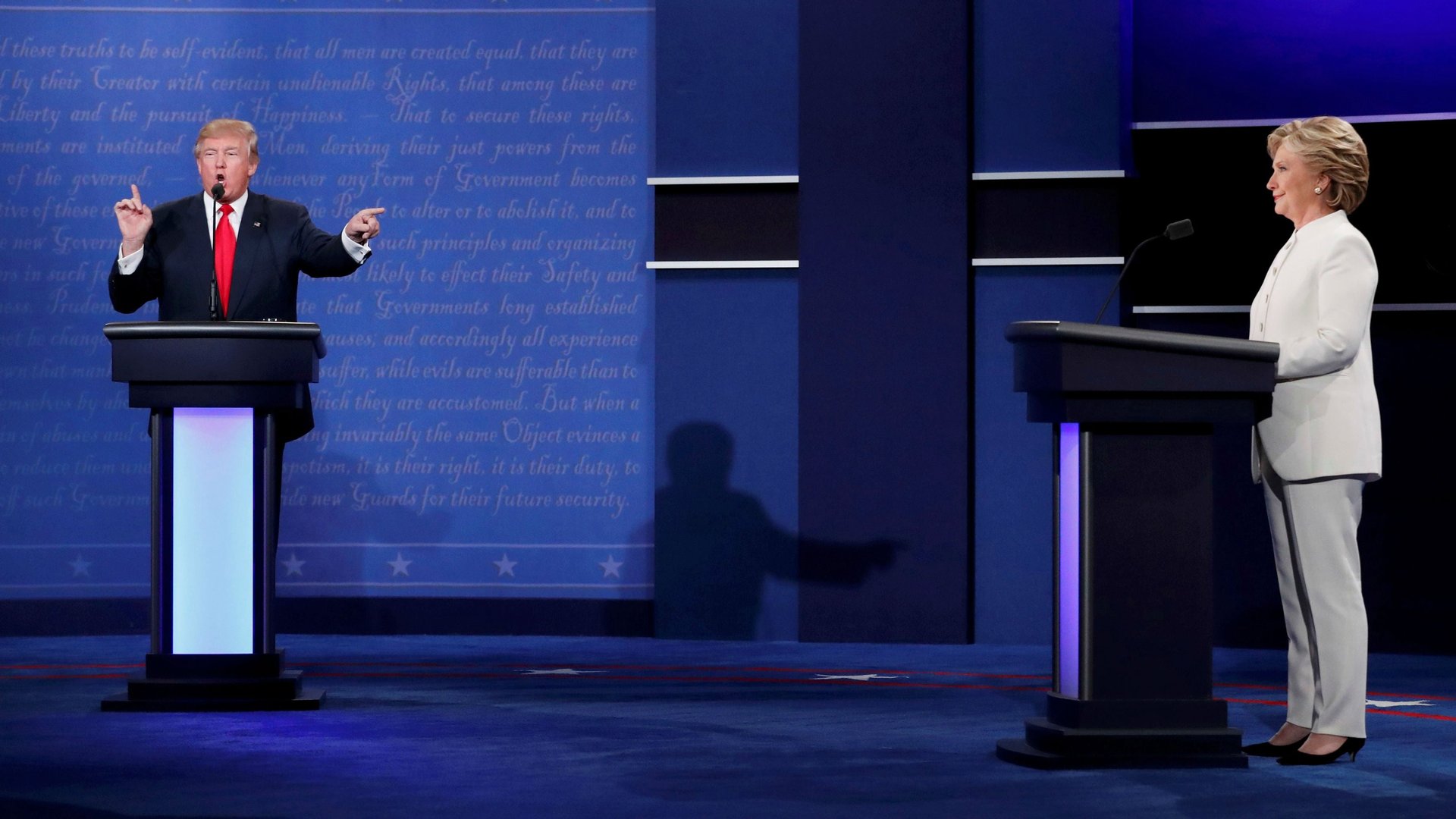The psychological conceit that explains how Trump can deny facts over and over with a straight face
Facing the facts is not always comfortable. Which is why sometimes, we choose to ignore them for as long as possible. When presented with enough evidence to the contrary, though, most of us own up to our denial.


Facing the facts is not always comfortable. Which is why sometimes, we choose to ignore them for as long as possible. When presented with enough evidence to the contrary, though, most of us own up to our denial.
But Donald Trump seems different in his approach to the facts. So far in his campaign for the US presidential election, Trump has lied about tax policy, refuted climate change, and continued to claim he has high respect for women despite a resurfaced recording of him bragging about feeling entitled to their bodies because of his celebrity, and numerous women coming forward with allegations of sexual molestation.
Trump refuses to own up to realities when the rest of us would ordinarily do so. He often seems incapable of it, which raises the question of how he can remain so strong in his unbelievable convictions. The answer? A handy psychological tool.
“Donald Trump is an extreme example, but it does illustrate something that we generally refer to as ‘motivated reasoning,’” says Sander van der Linden, a psychologist at University of Cambridge.
We all usually engage in some kind of logic that affirms our preexisting beliefs, van der Linden explains. This is called confirmation bias. Motivated reasoning is the extreme iteration of confirmation bias, and involves completely rejecting any school of thought that differs from your own. It usually comes from obsessing over some sort of end goal—in Trump’s case, winning the presidency. “It’s a psychological defense system,” van der Linden says. “Once you’re committed, you’re more and more motivated to maintain that argument or system.”
In other words, once you are so entrenched in your world view—that women can be belittled, that immigrants from certain countries need more vetting than others, or that systems are rigged against you—it’s much easier to dismiss any evidence to the contrary because it would fundamentally uproot your worldview. Van der Linden compares it to the way that conspiracy theorists think: When presented with evidence contrary to what they believe, they believe that this evidence is merely part of the conspiracy.
“You really don’t need any external evidence because you provide your own evidence and use it to reject others,” van der Linden says. “It’s a self-enclosed system, and you almost can’t get a sensible word in.”
Forcing anyone, let alone Trump, to consider a new set of facts as legitimate is difficult, but doable. Typically, it requires employing empathy and compassion—trying to understand why someone is so attached to a certain belief system that validates false facts. It also requires the other party being willing to engage in a dialogue.
Of course, politicians should hold firm beliefs. But when those convictions become a part of an identity, it’s essentially impossible to penetrate that world view. Much of Trump’s core ideology, though isn’t based in reality. Accepting these facts would be such an internal upheaval it’s unlikely he’ll ever escape his denial.